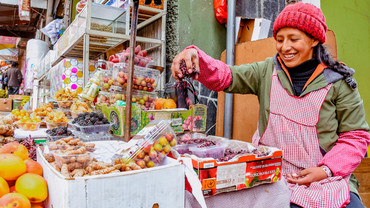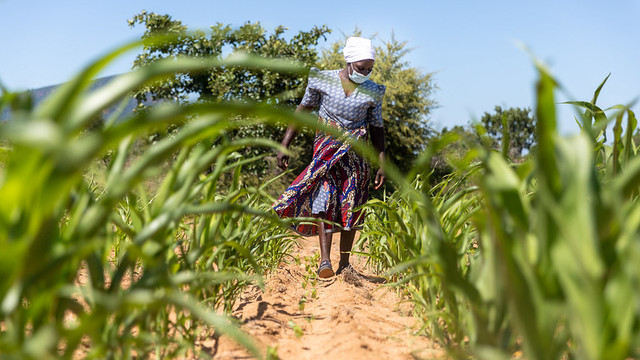Informal food markets offer diverse food products and crucial livelihood opportunities
A new IIED discussion paper highlights the importance of informal food markets in Zambia.

Soweto market in Lusaka, Zambia. By Rémi Kahane, GlobalHort, via Flickr, CC BY-NC 2.0
Informal markets play a critical role in providing affordable, accessible and diverse food for the urban poor, while at the same time supporting the livelihoods of millions of small-scale farmers, traders and vendors. In Zambia, the informal sector is a major source of employment and livelihoods and almost 80% of informal workers are employed in agricultural-related activities.
Among the findings are that although policy is biased towards formalisation, informal food markets offer opportunities for livelihoods and income generation, especially for women and young people, and that these markets play a critical role in linking the urban poor to key markets for fruits, vegetables and meat products.
Based on both qualitative and quantitative research, this discussion paper provides evidence on the current status, perceptions, challenges and policy context of the informal food markets in Lusaka and Kitwe, with the aim of identifying key points for action and policy. The findings were that:
- Informal food markets offer crucial opportunities for livelihoods and income generation, especially for women, young people, and those with less education.
- These markets play a critical role in linking the urban poor to key markets for fruits, vegetables and meat products.
- Traders face several challenges, including lack of access to capital and credit, spoilage due to lack of storage, and competition from import markets. Informal, trust-based credit from suppliers and membership of informal saving groups are key coping strategies.
- Few traders are members of associations, as they do not trust them to represent their interests.
- The government acknowledges the size and existence of the informal food sector, but policy is strongly biased towards formalisation. Government agencies lack tools to deal with the informal sector, leading to its marginalisation. Despite contributing almost two-fifths of the country’s GDP, the informal sector contributes just over 1% of the total national revenue.
This report is part of the Sustainable Diets for All programme. This is an advocacy programme that uses evidence, including evidence generated by citizens, to help low-income communities to improve their access to sustainable, affordable and nutritious food. The programme is working in Uganda, Zambia, Kenya, Bolivia and Indonesia, and is co-ordinated by Hivos, IIED and partners in the focal countries.



